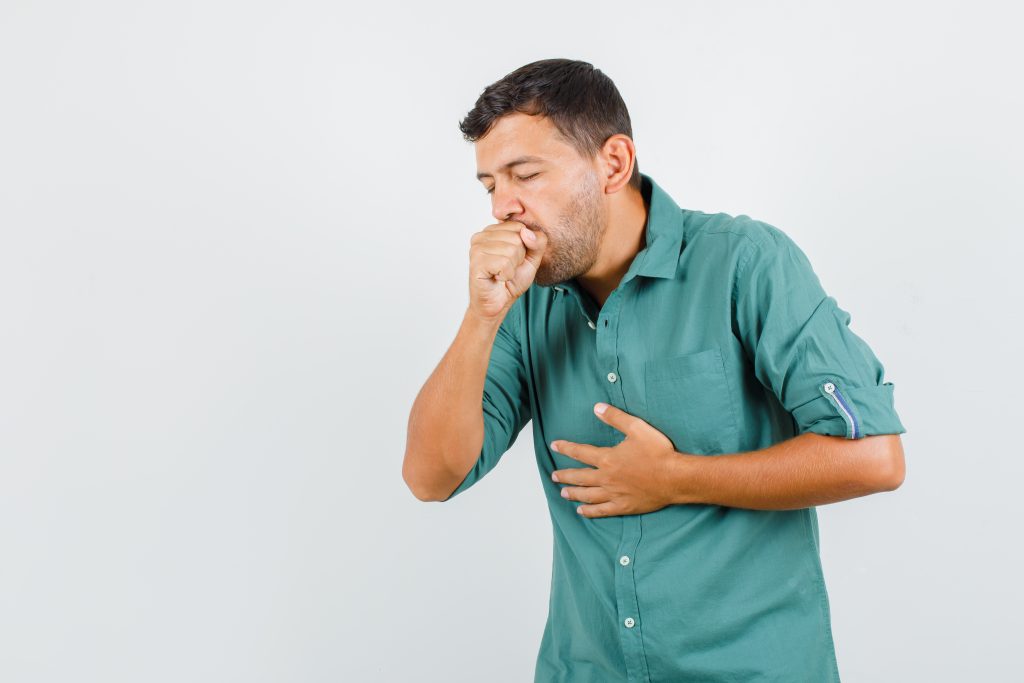Tuberculosis is a potentially serious and contagious infectious disease that mainly affects your lungs and it has two types:
- Active TB: There are signs and symptoms.
- Latent TB: There are no signs and symptoms but bacteria exist inside the body.
Signs / Symptoms
What's common signs of tuberculosis?
- Persistent cough (more than three weeks)
- Loss of appetite
- Weight loss without an intention
- Fever
- Sweating especially at night
- Tiredness or fatigue
Common causes
What's common causes of tuberculosis?
A person needs to inhale only a few germs to become infected with a bacteria called mycobacterium that spread from person to person through microscopic droplets released into the air. This can happen when someone with the untreated, active form of tuberculosis coughs, speaks, sneezes, spits, laughs or sings.
Departments & Emergency
If an individual has sign or symptoms it is recommended to see:
- Emergency Room
- General Practitioner
- Internal Medicine Specialist
- Pulmonary Medicine Specialist
- Allergy and Immunology Specialist
Diagnosis
It can be diagnosed by:
- Medical History
- Physical Examination
- Skin Test
- Sputum Tests
- Blood Tests
- Imaging Tests
Treatment
- Medical help such as antibiotics.
- Be caution when touching someone who has TB.
- Attention to hygiene such as hand washing
FAQ
How is tuberculosis spread?
It is spread through the air from one person to another.
Can you get tuberculosis again?
Even if it has been treated successfully, people that have beat tuberculosis, can get tuberculosis infection again.
Am I protected from TB if I have been vaccinated with BCG?
BCG vaccine protects against the severe, life-threatening forms of extra-pulmonary TB such as TB meningitis and miliary TB in childhood. However, it is unreliable protection against pulmonary TB, the main form of tuberculosis.
Once a person completes treatment for TB disease and is cured, can he/she get TB again?
This is unlikely but can, rarely, occur. If the patient has taken the medicine in the right way for as long as the doctor advises, the chances of getting TB again are low.
References:
- World Health Organization. Health Topic: Tuberculosis. Retrieved April 23, 2021, from https://www.who.int/health-topics/tuberculosis#tab=tab_1
- Centers for Disease Control and Prevention. (2016). Tuberculosis. Retrieved April 23, 2021, from https://www.cdc.gov/tb/topic/basics/default.htm
- American Lung Association. (2020, October 24). Tuberculosis (TB). Retrieved April 23, 2021, from https://www.lung.org/lung-health-diseases/lung-disease-lookup/tuberculosis
- National Institute of Allergy and Infectious Diseases (NIAID). Tuberculosis. Retrieved April 23, 2021, from https://www.niaid.nih.gov/diseases-conditions/tuberculosis
- National Health Service (NHS). (2019, November 12). Tuberculosis (TB). Retrieved April 24, 2021, from https://www.nhs.uk/conditions/tuberculosis-tb/
- Mayo Clinic (2021, April 3). Tuberculosis. Retrieved April 24, 2021, from https://www.mayoclinic.org/diseases-conditions/tuberculosis/symptoms-causes/syc-20351250
- World Health Organization. (2013). Frequently Asked Questions about Tuberculosis. Retrieved April 24, 2021, from https://apps.who.int/iris/bitstream/handle/10665/205081/B5009.pdf?sequence=1&isAllowed=y




Pingback: Athlete's Foot (Tinea Pedis) - Yesil Health